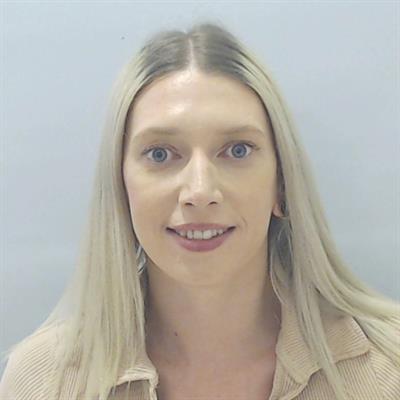
Dr Meg Elliott
Dr Meg Elliott
Dr Meg Elliott is a Research Officer in the Immune Development group at the Murdoch Children’s Research Institute.
Meg was awarded a Walter and Eliza Hall Domestic PhD Scholarship and completed her postgraduate studies in normal colon crypt biology, bowel cancer chemoprevention and characterising a recurrent genetic deletion in colorectal cancers.
Meg is currently working with Dr Jacqueline Schiesser on improving the generation of insulin producing beta cells from pluripotent stem cells.
Meg was awarded a Walter and Eliza Hall Domestic PhD Scholarship and completed her postgraduate studies in normal colon crypt biology, bowel cancer chemoprevention and characterising a recurrent genetic deletion in colorectal cancers.
Meg is currently working with Dr Jacqueline Schiesser on improving the generation of insulin producing beta cells from pluripotent stem cells.
Dr Meg Elliott is a Research Officer in the Immune Development group at the Murdoch Children’s Research Institute.
Meg was awarded a Walter and Eliza Hall Domestic PhD Scholarship and completed her postgraduate studies in normal colon crypt...
Meg was awarded a Walter and Eliza Hall Domestic PhD Scholarship and completed her postgraduate studies in normal colon crypt...
Dr Meg Elliott is a Research Officer in the Immune Development group at the Murdoch Children’s Research Institute.
Meg was awarded a Walter and Eliza Hall Domestic PhD Scholarship and completed her postgraduate studies in normal colon crypt biology, bowel cancer chemoprevention and characterising a recurrent genetic deletion in colorectal cancers.
Meg is currently working with Dr Jacqueline Schiesser on improving the generation of insulin producing beta cells from pluripotent stem cells.
Meg was awarded a Walter and Eliza Hall Domestic PhD Scholarship and completed her postgraduate studies in normal colon crypt biology, bowel cancer chemoprevention and characterising a recurrent genetic deletion in colorectal cancers.
Meg is currently working with Dr Jacqueline Schiesser on improving the generation of insulin producing beta cells from pluripotent stem cells.
Top Publications
- Sakthianandeswaren, A, Sabljak, P, J. Elliott, M, Palmieri, M, M. Sieber, O. Predictive Biomarkers for Monoclonal Antibody Therapies Targeting EGFR (Cetuximab, Panitumumab) in the Treatment of Metastatic Colorectal Cancer. 2024 view publication
- Williams, DS, Mouradov, D, Browne, C, Palmieri, M, Elliott, MJ, Nightingale, R, Fang, CG, Li, R, Mariadason, JM, Faragher, I, et al. Overexpression of TP53 protein is associated with the lack of adjuvant chemotherapy benefit in patients with stage III colorectal cancer. Modern Pathology 33(3) : 483 -495 2020 view publication
- Elliott, MJ, Knerr, NJ, Schmidt‐Lebuhn, AN. Choice between phylogram and chronogram can have a dramatic impact on the location of phylogenetic diversity hotspots. Journal of Biogeography 45(9) : 2190 -2201 2018 view publication



